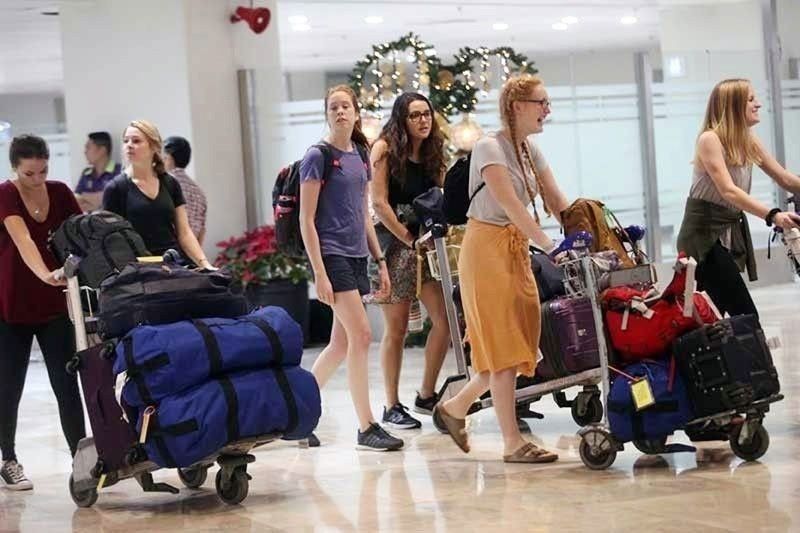Restrictions eased on foreign, local travel

MANILA, Philippines — With the country now recording slower transmission of COVID-19, the government is allowing non-essential foreign trips beginning Oct. 21, subject to health protocols and certain restrictions set by the Inter-Agency Task Force for the Management of Emerging Infectious Diseases (IATF).
Under IATF Resolution No. 79, those allowed to leave for abroad are overseas Filipino workers (OFWs), students enrolled abroad or those accepted in exchange visitor programs, permanent residents of foreign jurisdictions and foreign nationals.
Presidential spokesman Harry Roque Jr. yesterday said the IATF approved the lifting of restrictions for non-essential travel of Filipinos after discussions among members of the task force.
“In the same 79th meeting, the IATF lifted the restriction of non-essential outbound travel of Filipinos effective Oct. 21, 2020,” Roque said.
This developed as the IATF also relaxed travel restrictions between general community quarantine to modified GCQ areas.
“The IATF has approved that interzonal movement of non-APOR between GCQ and MGCQ areas and the travel between MGCQ and areas to be declared as new normal,” Roque said. Non-APOR refers to persons not authorized outside of residences.
He said inbound travel by foreigners is still not allowed.
“Only Filipinos will be accommodated – their relatives and those specifically allowed by the Bureau of Immigration (BI) upon the endorsement of the relevant government agencies,” he said in Filipino and English.
The IATF amended earlier guidelines, which now allow outbound travel of Filipinos regardless of purpose. “For those traveling on tourist visas, submission of confirmed round-trip tickets and adequate travel and health insurance to cover travel disruptions and hospitalization in case of COVID-19 infections during their allowable period of stay abroad,” the IATF resolution said.
The government also requires the execution of a declaration from the BI in which travelers should acknowledge the risks involved in traveling, such as risk of delay in their return trips. The immigration forms will be provided at check-in counters of airlines.
“As a pre-boarding requirement, a negative antigen test result taken within 24 hours before departure, in accordance with the guidelines and protocols as may be issued by the Department of Health with regard to its fair and appropriate use or, whenever required by the country of destination, a negative test result taken in accordance with the health and safety protocols of the destination country,” the IATF said.
“The foregoing provisions shall not be interpreted to allow outbound travel by Filipinos to countries where travel restrictions are in place; and finally, this is without prejudice to the exercise of the mandate of the Bureau of Immigration prior to departure,” the IATF said.
Interzonal
The IATF said the interzonal movement of non-APOR between GCQ and MGCQ areas for any purpose are now allowed, subject to the regulations imposed by the local government unit concerned.
In the case of Boracay Island, the IATF said regulations will come from the Boracay Inter-Agency Task Force.
The IATF also allowed the intrazonal movement of non-APOR across areas placed under GCQ or MGCQ and the interzonal movement of non-APOR between areas placed under MGCQ and the new normal.
Those considered APOR are health and emergency frontline services personnel, government officials and frontline personnel, duly-authorized humanitarian assistance actors and persons traveling for medical or humanitarian reasons.
Individuals going to the airport for travel abroad, anyone crossing zones for work or permitted businesses and going back home, returning overseas Filipinos and other persons transported through the efforts of the national government are also covered. – Louella Desiderio
- Latest
- Trending
































